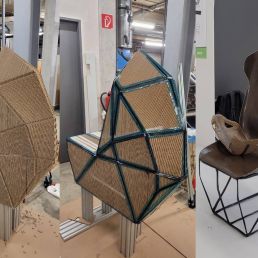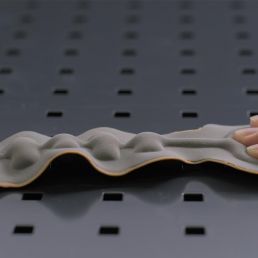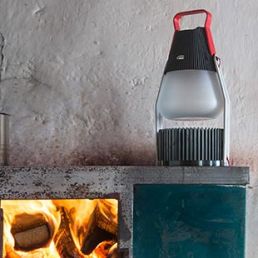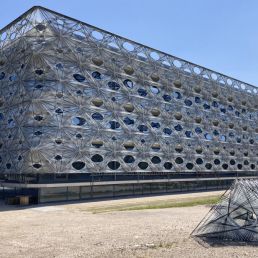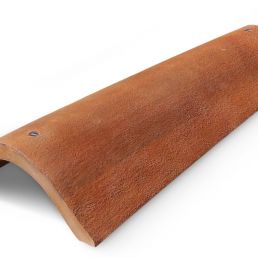
Neptune grass
Thermal insulation from the sea
17 July 2010
They can be found on the coasts of southern Italy, Tunisia and Sicily. Neptune balls are matted seaweed balls from the Posidonia oceanica plant with some exceptional properties for the construction industry. In addition to very good thermal insulation values, they are primarily one thing: Naturally “poorly flammable” (building material class B2) and therefore suitable for reducing heat losses on the building envelope; e.g. for insulation between rafters in pitched roofs, facade insulation or for insulation of interior walls.
Neptune fibers with summer heat protection
The heat conduction is 0.043 W/mK. Since Neptune balls contain no proteins and only a few salts (proportion: 0.5–2%), the insulation material hardly rots. In addition, the seagrass fibers have no properties that are hazardous to health and have very good shielding properties against electromagnetic radiation. The ECO Institute in Cologne has proven this in extensive studies. When absorbing water vapor, the insulation properties change only slightly. As an insulating material, seaweed balls have been marketed under the name “Neptutherm” since 2009. Neptutherm has already received approval from the building authorities for filling and plugging.
The determination of the specific heat storage capacity of the natural insulation material by the Fraunhofer Institute for Building Physics IBP in Holzkirchen resulted in an extremely positive surprise. The higher this value, the better the insulation stores the heat that has penetrated it and the better it protects the building from the heat of summer. The determined value of 2,502 J/kgK is almost 20% higher than for wood and wood-based materials, which had previously topped the list in terms of summer heat protection. Another very special quality of the valuable marine litter is that hardly any energy has to be invested in the manufacture of the insulation material.
The primary energy consumption including transport is significantly lower with NeptuTherm than with all other insulation materials. Disposal in the event of a later termination is also completely unproblematic. They can simply be raked under the garden soil to loosen up the soil, for which Prof. Meier has a European patent. There is no other product whose disposal is so sustainable and safe!
NeptuTherm has already proven its worth in various new construction and renovation projects. Together with the Fraunhofer Institute for Chemical Technology ICT in Pfinztal and other research partners, a solid, ecologically sound panel is now to be developed in order to be able to offer complete systems for roof, facade, interior and basement ceiling insulation made from the fiber material. The insulation material from the sea is usually installed by specialist companies, but you can also process it yourself. The professional stuffing of the wool as roof, interior or facade insulation as well as applying it to the top floor ceiling is child’s play. You can get NeptuTherm directly from the manufacturer or through specially trained sales partners. The natural insulation material is quite affordable: For example, 20 cm insulation thickness in the wall, as insulation between rafters or insulation of the top floor ceiling for the end customer costs € 28/m2 plus VAT and shipping costs.
image: Richard Meier
Ecoblaq molecular wood colours
23 March 2024
Ecoblaq is a molecule manipulation method, a natural chemical reaction, making…
Natural fiber reinforced car seat
22 October 2023
The focus of the project "Design for Recycling" is a seat shell that is made…
MotorSkins morphing textiles
19 April 2022
Berlin based start-up MotorSkins designs and produces textiles with embedded…
3D Pioneers Challenge 2022
15 December 2021
The 3D Pioneers Challenge 2022 adresses tech pioneers who pave the way for…
IGNIS – Light from waste heat energy
12 August 2020
The availability of affordable, independent and, above all, clean electrical…
Brake disc with reduced fine dust
21 April 2021
Fine dust endangers our health. One of the main sources is traffic, especially…
Texoversum
15 July 2023
With the "Texoversum", Reutlingen University has put into operation a training…
Invisible Terracotta Solar Rooftile
10 May 2023
The family-run business Dyaqua has developed a technology to integrate a…
Xarvio – Digital Farming
8 January 2021
BASF Digital Farming GmbH has received the renowned Crop Science Award for the…

